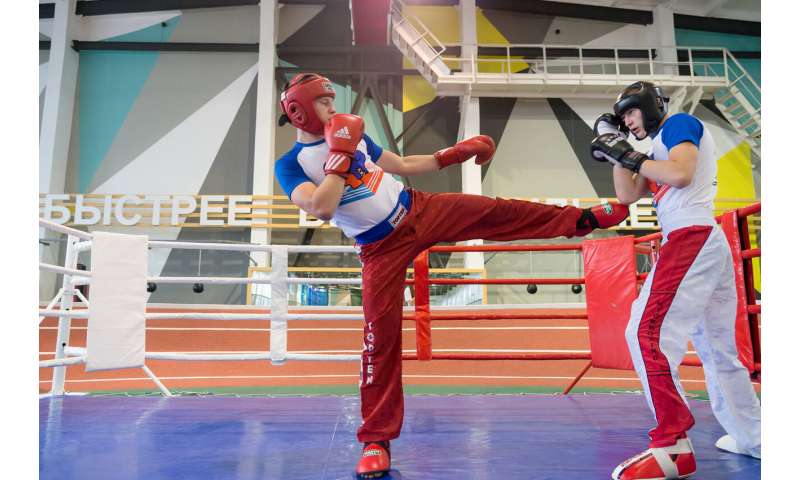The Influence of COVID-19 on Stress Level in Athletes

Scientists from South Ural State University, together with their foreign colleagues, studied the effect of stress levels on the performance of athletes. They studied stress during the coronavirus pandemic, which makes the study even more relevant. The scientists concluded that during the COVID-19 pandemic, athletes showed lower levels of stress. Scientists identified gender differences in stress management strategies. The study was published in the highly ranked journal Physical Therapy, Sports Therapy, and Rehabilitation (Q2).
Pandemic stress
D. Sc., Professor Yevgeny Cherepov conducted a study that showed that the success of athletes at the same level of sportsmanship depends on individual differences associated with how they cope with stress. The COVID-19 pandemic, ongoing since the beginning of this year, has affected all areas of life, being one of the sources of stress.
Scientists have suggested that emotional stress and external stress among athletes are significantly higher during the pandemic than before it and martial arts athletes are less likely to use active stress management strategies during the pandemic. The study aimed to test these two hypotheses. An international team of scientists from Spain, Poland, Romania, Slovakia, Lithuania, Iran, and Indonesia worked together with their Russian colleagues.
"Higher levels of emotional stress, external stress, and intrapsychic stress were observed in Polish and Romanian martial arts athletes in the pre-pandemic period. Stress levels were higher before the pandemic than during its peak when the lowest levels of emotional stress and external stress were found among athletes in Romania, and the highest in Lithuania and Spain. On the other hand, the lowest level of intrapsychic stress among athletes is in Poland, and the highest is in Lithuania" Evgeniy Cherepov explains.
Scientists concluded that the consequences of the pandemic are not associated with an increase in subjectively perceived psychological stress among athletes from countries affected by the pandemic to varying degrees. The use of non-adaptive coping strategies such as denial, use of psychoactive substances, the release of negative emotions, etc., can reduce subjective stress (emotional stress, external stress, and intrapsychic stress). It was the use of these strategies that contributed to the reduction of stress levels in athletes involved in martial arts.
Gender differences in coping strategies
The study used the Perception of Stress Questionnaire measuring the following dimensions of stress: emotional tension, external stress, and intrapsychic stress. Coping strategies were measured with the Brief COPE questionnaire distinguishing 14 coping strategies. Seven hundred and eighty-one athletes (including 116 martial arts athletes) from Poland, Romania, and Slovakia took part in the study in the pre-pandemic period. During the height of the pandemic, athletes from Hungary, Indonesia, Iran, Latvia, Lithuania, Poland, Romania, Russia, Slovakia, and Spain took part in the study (n = 1032, including 396 martial arts athletes) the COPE method was used. It identifies 14 strategies for dealing with stress. After analyzing the results of the surveys, scientists concluded that men and women deal with stress differently.
"We have identified key strategies for dealing with stress based on the gender of athletes. Regardless of gender, athletes used stress management strategies such as denial, focusing on emotions, accepting, and medication to deal with stress. However, men are more likely to use strategies such as self-blame, while women prefer the avoidance strategy. In general, we concluded that during the pandemic caused by the COVID-19 virus, martial artists demonstrated lower stress indicators than before the pandemic" Evgeny Cherepov says.
Thus, the hypothesis that martial arts athletes were less likely to use problem-based stress management strategies during the pandemic was confirmed. Regardless of their occupation, women use a mental escape from the problem, concentrating on emotions, as well as instrumental and emotional social support more often than men. In general, these features are consistent with the existing data on the propensity of women to react emotionally and more willingness to use social support in difficult situations.
SUSU is a participant of Project 5-100, which aims to increase the competitiveness of Russian universities among the leading research and educational centers.
More information:
archbudo.com/view/abstract/id/13812
Provided by South Ural State University